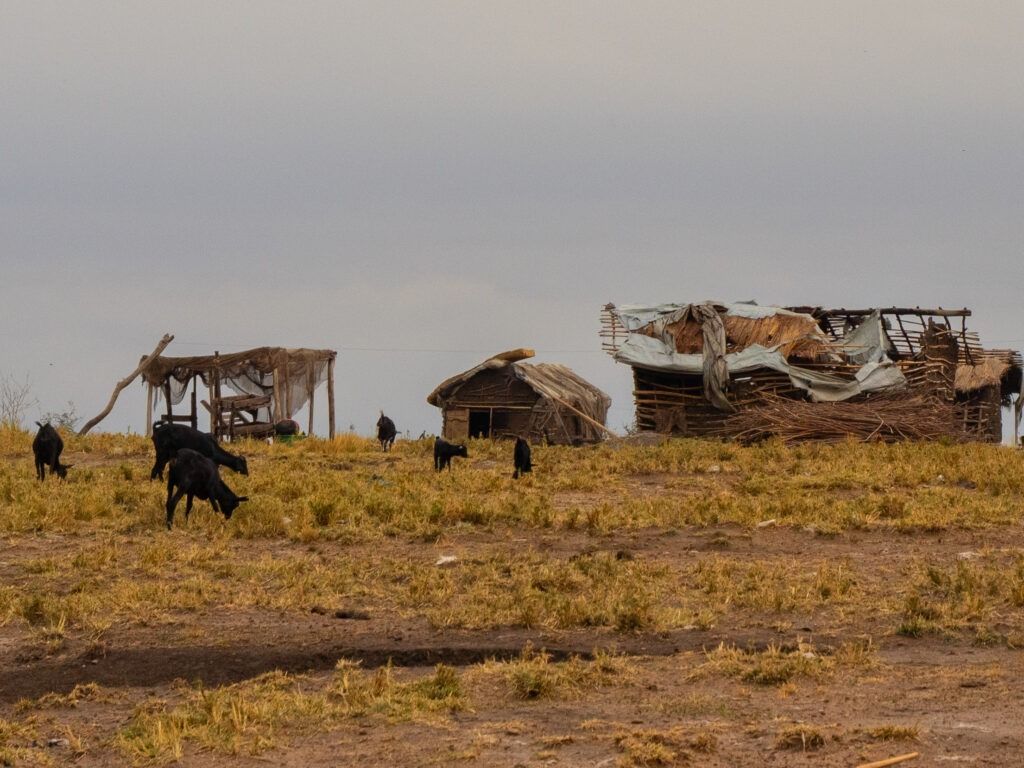Due to low-value payments, absentee landlords, and a complicated land ownership system in some areas of the country, Uganda’s government has begun a legal battle with 112 landowners who the East African Crude Oil Pipeline (Eacop) is set to displace.
As a result, a Ugandan court will on Monday hear a case in which the government has sued eighty individuals, attempting to force them off their land in three districts within the Greater Masaka region along the Eacop route. The developers of these districts are rushing to meet the deadlines for the nation to begin exporting oil that year.
Two related instances involving landowners from the Hoima and Kyankwanzi districts this week were also heard. These districts are a part of the 296 km Eacop length in Uganda, where at least 32 absentee landowners and others who rejected low-value compensation pose a serious delay.
The 112 cases “under consideration for compulsory land acquisition due to issues such as untraceable individuals, landowner disputes, refusal of compensation offers, and lack of legal title,” according to Energy Minister Ruth Nankabirwa, were recognised last month in a media conference in Kampala.
With early civil works nearly finished, Eacop officials told journalists that the project is approaching a vital stage to begin laying the pipeline.
In addition to the six pump stations and the twelve main camp people yards (MCPYs) that are now under construction, the coating facility in Tanzania was put into service in March and 700 km of line pipe have already been sent there.
“Early civil works are ongoing in both Uganda and Tanzania,” Ms Nankabirwa said.
“In Uganda, work has been completed at three of the five MCPYs located in Hoima, Kakumiro, and Sembabule districts, while work continues at the MCPYs in Mubende and Kyotera districts.”
However, on the Ugandan side of the corridor—the shorter one—the pace of clearing the 1,443 km Eacop route has been slower and fraught with disputes; just 96% of project-affected individuals (PAPs) in Uganda have received compensation, compared to 99% in Tanzania.
In Uganda, the pipeline corridor includes 2,740 acres over 296km and has 3,660 PAPs. In Tanzania, the pipeline corridor covers 10,081 acres over 1,147km and has 9904 eligible persons for compensation.
Some of the impacted parties, who were sued for not having legal standing or a representative to handle their families’ compensation, have attributed their problems to NewPlan, the company that was contracted to carry out the Eacop resettlement action plan, as the hearing for these lawsuits aimed at evicting the landowners gets underway.
For example, Sarah Namatovu claims that after the rightful landowner passed away, her family was sued for not having a legal representative or letters of administration to the estate. The resettlement action plan contractor pledged to pursue the processing of a death certificate to comply with this requirement.
“NewPlan came to our home in 2018 and informed us that the death certificate we have was not fit for purpose. This is because the certificate was not issued by the National Identification and Registration Authority,” she explained.
“NewPlan promised to support us to acquire the right death certificate so that we could process letters of administration and get compensation, but they never did. The next thing we heard is that we had been sued because we rejected compensation, yet we did not.”
As the hearing for these lawsuits aimed at evicting the landowners begins, some of the affected parties—who were sued for lacking legal standing or a representative to handle their families’ compensation—have attributed their problems to NewPlan, the company hired to carry out the Eacop resettlement action plan.
For instance, Sarah Namatovu asserts that her family was sued for failing to have letters of administration to the estate or a legal agent following the death of the legitimate landowner. To meet this criterion, the resettlement action plan contractor promised to seek the processing of a death certificate.
When NewPlan visited our house in 2018, they told us that the death certificate we had was not valid. She said, “This is because the National Identity and Registration Authority did not issue the certificate.
“The affected estates are those under the Succession Register in Buganda Kingdom. Matters relating to those estates are supposed to be administered by the kingdom,” he said, adding that because of that directive, it has been difficult for some people in Buganda to obtain certificates of no objection from the office of the Administrator-General to process letters of administration.

 Metro2 days ago
Metro2 days ago
 Metro2 days ago
Metro2 days ago
 Musings From Abroad2 days ago
Musings From Abroad2 days ago
 Sports2 days ago
Sports2 days ago





























